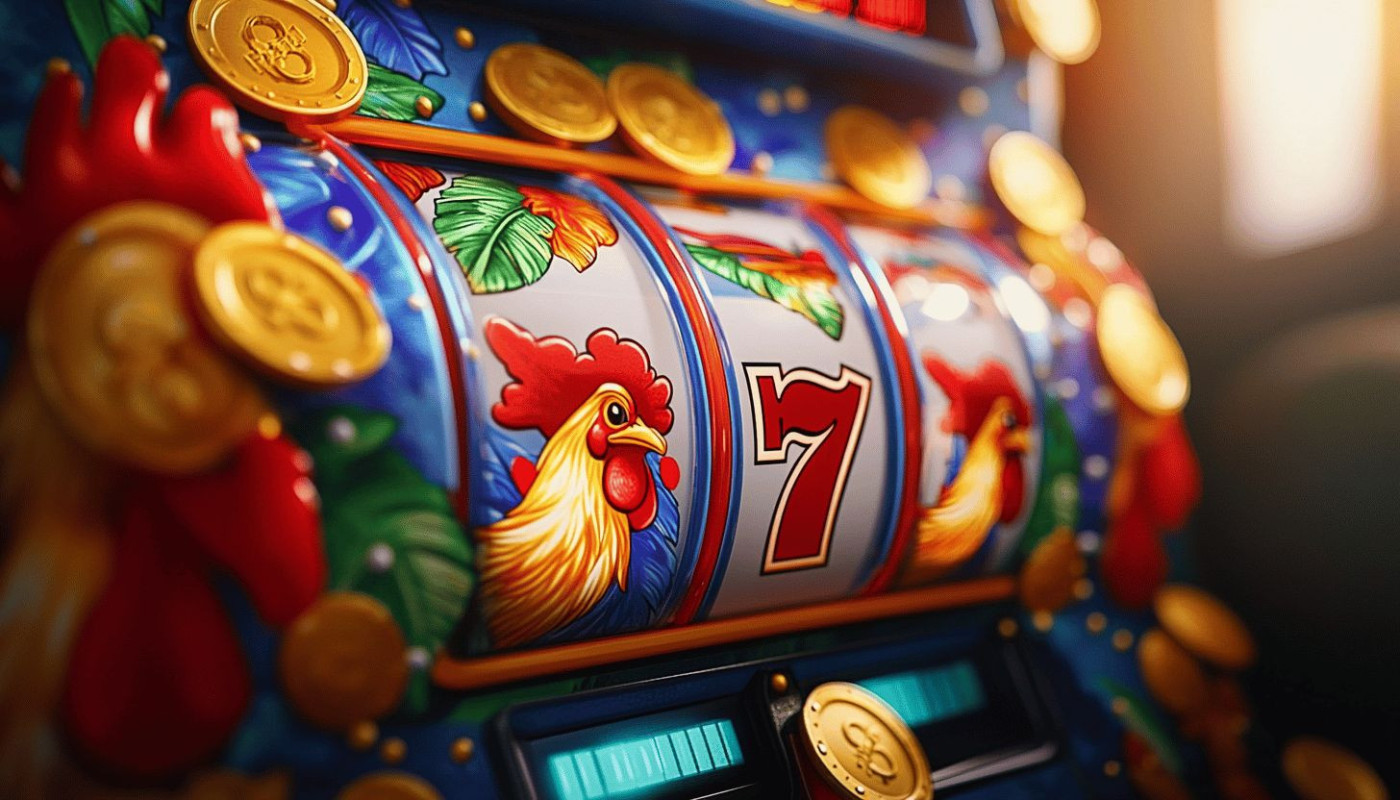Table of contents
Embarking on a journey into the heart of casinos unveils a world where every detail is meticulously designed to entice and retain guests within its mesmerizing embrace. It's not just about luck and chance; it's about a carefully orchestrated experience that plays on the psyche, urging players to stay longer and play more. The strategic placement of games, the vibrant symphony of lights and sounds, and the illusion of control—all these elements converge to create an environment that is as psychologically potent as it is visually stunning. This exploration reveals how casinos have mastered the art of design psychology, transforming entertainment spaces into marvels of behavioral manipulation. Discover the hidden cues that guide behavior, the subtle nudges that prolong engagement, and the sophisticated strategies that casinos employ to turn the simple act of playing into an irresistible draw. Delve into the intricacies of this captivating world and uncover the secrets that keep players anchored to the game. Each paragraph that follows will shine a light on a different facet of this intricate tapestry, beckoning readers to understand the magnetic allure of the casino experience.
Decoding the Casino Environment
The architecture and interior design of casinos are not mere outcomes of aesthetic preferences; they are carefully crafted with the intent to foster an enthralling space that beckons guests to linger longer and engage freely with the gaming offerings. A pivotal aspect of casino design is the strategic absence of clocks and windows, a decision aimed at severing players' ties to the external world and the natural progression of time. This sensory insulation from daylight and the rhythm of daily life promotes a temporal limbo, engendering a sense of perpetual now that is conducive to prolonged gaming sessions.
In the realm of color usage and lighting, casinos employ a deliberate palette that pairs vibrancy with warmth, constructing an environment that is at once stimulating and reassuring. This juxtaposition is a textbook example of cognitive dissonance, where the excitement of bright, flashing lights coexists with soothing undercurrents, keeping patrons in a state of comfortable alertness. Simultaneously, the layout of gaming floors is meticulously designed in a maze-like configuration, which not only maximizes the exposure to a variety of games—thus leveraging the behavioral manipulation—but also encourages exploration and interaction, subtly guiding players through a labyrinth of choices.
The cumulative effect of these design choices, rooted in gaming psychology, is a compelling casino environment that entwines sensory stimulation with the subtle intricacies of behavioral influence. The casino layout and atmospheric touches are not happenstance; they are the result of rigorous planning and psychological insight, all engineered to enhance the allure of the gaming experience and entice visitors to remain within the casino's vibrant embrace for as long as possible.
The Sirens of Sound and Light
The vibrant cacophony of a casino is no accidental occurrence; it's a carefully orchestrated symphony of sensory marketing aimed at captivating players. The sound design in gaming is a finely-tuned instrument designed to influence mood and behavior. Upbeat music and the clinking of coins from winning machines generate an atmosphere brimming with excitement and possibility. This auditory euphoria suggests that winning is omnipresent, encouraging players to continue in the hopes of experiencing their own success. In parallel, ambient casino sounds serve a subtler purpose. Soft, rhythmic melodies and the gentle hum of background noise offer a soothing backdrop that can help players remain calm and focused during the ebb and flow of gaming fortunes.
Lighting effects, too, play a vital role in the casino atmosphere. Beyond mere functionality, lighting is wielded as an artistic tool to guide players' attention and create a warm, inviting environment. Strategic illumination accentuates gaming areas and jackpot signals, drawing players towards the promise of thrilling gameplay and substantial rewards. The glow of lights and the flash of colors aim to evoke a sense of wonder and anticipation. Together, the psychological effects of music and lighting converge to craft an environment that entices players to stay, play, and immerse themselves in the alluring world of the casino. The expertise of casino interior designers and sound engineers is pivotal in integrating these elements to create an environment that is both psychologically persuasive and aesthetically appealing.
The Illusion of Control
Casinos are adept at creating an environment where players feel they are in charge of the outcome, often through the strategic design of games that foster the gaming control illusion. This sense of control is a powerful motivator for player engagement, as individuals are more likely to continue playing if they believe their actions can influence the game. For instance, slot machine design plays a pivotal role in this psychological tactic. Players can choose the number of active paylines, and the placement of buttons is such that it gives a tactile sense of interaction, reinforcing the perception of control.
The influence of game pacing is another subtle yet effective tool used to promote continuous play. Games are structured to give just enough wins to keep players hopeful and engaged. The perceived skill involved, especially in games that incorporate choice or strategy, deepens the engagement. Even when the outcomes are predominantly random, the presence of skill-based elements, like deciding when to hit in blackjack or choosing items in bonus rounds, can lead to a greater investment of time and money.
The concept of operant conditioning is at play here, where the user is conditioned to expect rewards at variable intervals, maintaining high levels of engagement. This psychological principle is embedded in game mechanics, creating an environment where the player feels their actions are directly tied to the outcome, despite the high level of chance involved. Such strategies in game interaction are what make casinos successful in retaining players at the machines and tables for extended periods.
Navigating the Maze: Casino Layout
The arrangement of a casino's interior is a deliberate tactic, employing the principles of spatial psychology to heighten player retention and engagement. Often referred to as casino architecture, the gaming floor design is akin to a complex labyrinth, guiding visitors through a network of enticing gaming opportunities. This strategic layout is no accident; it's crafted to disorient and immerse players in the environment, subtly encouraging them to stay and play longer than they might have intended. The seamless integration of slot machines and gaming tables creates an endless loop, where the chance to gamble appears at every turn and exit points are not readily apparent.
In the vast expanse of the casino floor, critical amenities such as restrooms, cashiers, and buffets are strategically placed deep within the space, ensuring that patrons must navigate past numerous gaming areas to reach them. This design not only increases the likelihood of additional betting but also serves to familiarize players with different games they might not have considered trying. The concept of casino navigation is thus a core component of the gambling experience, designed to create a seamless flow that indirectly encourages continuous play. By understanding these design tactics, players can become more cognizant of their surroundings and their susceptibility to the subtle lure of the casino's spatial psychology.
Psychological Rewards and Incentives
Within the vibrant environs of a casino, a meticulously crafted system of psychological rewards and incentives plays a pivotal role in fostering player loyalty and encouraging repeat visits. Central to this strategy is the casino rewards program, which leverages the comp points system to provide tangible benefits to patrons. These comp points accumulate as individuals engage with slot machines and gaming tables, serving as a metric of their time and financial investment in the casino. The allure of complimentary services, known colloquially as 'freebies'—ranging from free meals and room upgrades to exclusive event access—is not merely in their receipt but also in the anticipation of such rewards. Players often find the possibility of earning these perks as enthralling as the rewards themselves, creating a compelling reason to revisit the establishment.
Loyalty programs are specifically designed to recognize and incentivize frequent patrons, embedding a sense of exclusivity and appreciation that further cements their relationship with the casino. This framework of behavioral incentives is supported by a principle known as intermittent reinforcement, a technical term describing a reward system where benefits are dispensed unpredictably and variably, akin to how a slot machine operates. This intermittent schedule of reinforcement is exceptionally effective in maintaining behaviors, as it taps into the psychological underpinnings that govern habit formation and risk-taking. A marketing executive with a background in casino promotions or a behavioral economist would attest to the sophistication and effectiveness of these strategies in maintaining a high level of player engagement and continuous patronage.
On the same subject


















